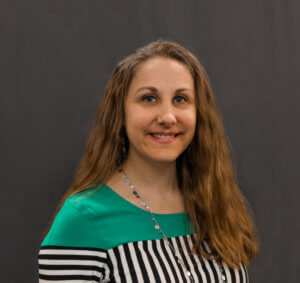Young Adult Program renamed Emerging Adult Program
What does the Emerging Adult Program change mean?
Ashley’s Young Adult Programming has evolved over the past few years into a robust clinical service that supports Emerging Adults in helping them to cultivate positive connections in their lives. Our clinical philosophy is rooted in a simple truth: connection is the key to recovery. Connection with self, others, and a power greater than self helps patients develop a healthy self-concept, healthy interpersonal relationships, and a sense of meaning and purpose in life. Our goal for every Emerging Adult that enters our program is to guide them on the road to a sustainable, high quality life built on the foundation of recovery. In order to achieve this goal, we understand the need to truly engage young people in the treatment process. We have removed many of the didactic lectures and educational seminars that are the crux of traditional treatment approaches, and instead infused the programming with experiential interventions proven to increase patient engagement.
In this next phase of the Young Adult Program’s evolution, we recognized that there was a need to distinguish between an Emerging Adult – those in a time where they need support in building their lives, and an established adult – those who have established themselves whether it be with a home, family, etc. Established adulthood and Emerging Adulthood are not defined chronologically, but rather developmentally; meaning that someone in their late 20’s who has never had to pay a bill, rent, or cared for themselves or dependents would classify as an Emerging Adult. Typically, Emerging Adults are not successful when following a standardized 28-day treatment model and then returning to their lives.
Our innovative Emerging Adult Assessment is a three level tool that allows us to determine those patients best suited for our Emerging Adult Services. Chronically, age is no longer the main factor in this designation. With the addition of this more intensive assessment, an individual’s developmental life-stage is the focal point of our attention. Our Clinical and Medical teams have worked together to identify six key areas for assessment: Lifestyle/Life skills, Finances, Treatment History, Educational/Vocational History, Motivation for Treatment, and Self-Care Habits.
With our change from Young Adult Services to Emerging Adult Services, we will focus on 3 pillars of treatment:
– Clinical Services
– Life Skills Training
– Recovery Immersion
These pillars are supported by a foundation of basic self-care, specifically a structured daily schedule supporting good sleep hygiene, individualized exercise regimens, and healthy nutritional habits.
We understand that Emerging Adults are most influenced by members of their peer group. As such, treatment focuses on creating a positive peer community with authentic, vulnerable engagement. These positive peer connections foster a sense of unity and accountability within the patient community, which support positive treatment outcomes.
[dt_divider style=”thick” /]
Why Do We Treat Emerging Adult Women Differently Than Emerging Adult Men?
 Emerging Adult Women often require different care than that of Emerging Adult Men. They have different experiences, not only in life but in their use that requires a different way to treat than their male counterparts. We asked one of our Counselors, Jenn Ungham, a few questions about the different aspects of why Emerging Adult Women are treated differently and how we approach that here at Ashley.
Emerging Adult Women often require different care than that of Emerging Adult Men. They have different experiences, not only in life but in their use that requires a different way to treat than their male counterparts. We asked one of our Counselors, Jenn Ungham, a few questions about the different aspects of why Emerging Adult Women are treated differently and how we approach that here at Ashley.
1. Why do we treat Emerging Adult Women differently than Men?
Emerging Adult Women tend to begin using substances for different reasons than that of males. Women tend to isolate more and hide their drug use while men tend to act out in more overt ways which can help identify addiction earlier. Women have shown that they are susceptible to unhealthy relationships in early recovery which can distract them from their focus in early recovery. Based on cultural norms, women express emotions differently than men and are often perceived as being more overtly emotional. Body image issues including but not limited to self-harming and eating disorders are more likely to occur in Emerging Adult Women. Women tend to become addicted faster than that of males and develop medical consequences quicker due to their body composition. In the end, women tend to have a harder time quitting (withdrawal may be more intense)and are more susceptible to relapse.
2. What experiences do they have that are different from Emerging Adult Men?
Emerging Adult Women typically have higher rates of co-occurring disorders and in most cases they also have history of trauma. The means by which women acquire drugs often times lead them to high-risk situations sometimes ending in violence or prostitution. Women with children are often the primary caregivers and therefore under more stress and have stronger emotional bonds which can also make aftercare placement more difficult. Woman also seem to need more support while in treatment and when transitioning to aftercare.
3. What does Ashley do to treat Emerging Adult Women differently?
At Ashley, we have gender specific programming that emphasizes the need for Emerging Adult Women to cultivate relationships with other Adult Women to build healthy support networks. We immerse them in the local 12-step community via women’s only AA meetings.
In addition to gender specific programming, we also designate gender specific staff in order to help the patients keep the focus on their recovery. Examples would be a female specific counselor (me) who specializes in women’s issues while also providing them with a female Patient Care Coordinator and a Women’s Seeking Safety Process Group.
4. What is the best aftercare plan for Emerging Adult Women that will provide long term results?
Long term extended care programs that provide wrap around services for co-occurring disorders, trauma and family engagement.
5. How important is family support and what can they do to support and engage their Emerging Adult Female in treatment?
Because women are often times treated differently by their family when in active addiction the dynamics are unique when they enter treatment and require specific family interventions to re-establish healthy bonds and means of communication. Families should participate in family programming and support treatment by encouraging aftercare.[/vc_column_text][/vc_column][/vc_row][vc_row][vc_column][vc_column_text]
[dt_divider style=”thick” /]
Message To My Younger Self
We asked several of our Emerging Adult Team “If I could give my younger self (you age 18-25) one piece of advice, wisdom, whatever, it would be…[/vc_column_text][/vc_column][/vc_row][vc_row][vc_column width=”1/2″][vc_single_image image=”52382″ img_size=”large” alignment=”center”][vc_column_text]
James Ryan, LCPC
Assistant Program Director
[/vc_column_text][/vc_column][vc_column width=”1/2″][vc_single_image image=”52377″ img_size=”large” alignment=”center”][vc_column_text]
Patrick Trentalange, MSW, LCSW-C
Counselor
[/vc_column_text][/vc_column][/vc_row][vc_row][vc_column width=”1/2″][vc_single_image image=”52448″ img_size=”large” add_caption=”yes” alignment=”center”][vc_column_text]
Jenn Ungham, Counselor
[/vc_column_text][/vc_column][vc_column width=”1/2″][vc_single_image image=”52374″ img_size=”large” add_caption=”yes” alignment=”center”][vc_column_text]
Bill Luke, Emerging Adult Counselor
[/vc_column_text][/vc_column][/vc_row][vc_row][vc_column width=”1/2″][vc_single_image image=”52384″ img_size=”large” add_caption=”yes” alignment=”center”][vc_column_text]
Jason Boehm, LGPC
Counselor
[/vc_column_text][/vc_column][vc_column width=”1/2″][vc_single_image image=”52369″ img_size=”large” add_caption=”yes” alignment=”center”][vc_column_text]
Aaron Bruzzese, Lead Patient Care Coordinator
[/vc_column_text][/vc_column][/vc_row][vc_row][vc_column width=”1/2″][vc_single_image image=”52370″ img_size=”large” add_caption=”yes” alignment=”center”][vc_column_text]
Brianna Fetherman, Patient Care Coordinator
[/vc_column_text][/vc_column][vc_column width=”1/2″][vc_single_image image=”52368″ img_size=”large” add_caption=”yes” alignment=”center”][vc_column_text]
Louis Marcell, Alumni & Community Services Representative
[/vc_column_text][/vc_column][/vc_row][vc_row][vc_column width=”1/2″][vc_single_image image=”52371″ img_size=”large” add_caption=”yes” alignment=”center”][vc_column_text]
Sara Austin, Alumni & Community Services Representative
[/vc_column_text][/vc_column][vc_column width=”1/2″][vc_single_image image=”52385″ img_size=”large” add_caption=”yes” alignment=”center”][vc_column_text]
Steven Breidenstein, CSC-AD
Counselor
[/vc_column_text][/vc_column][/vc_row]




